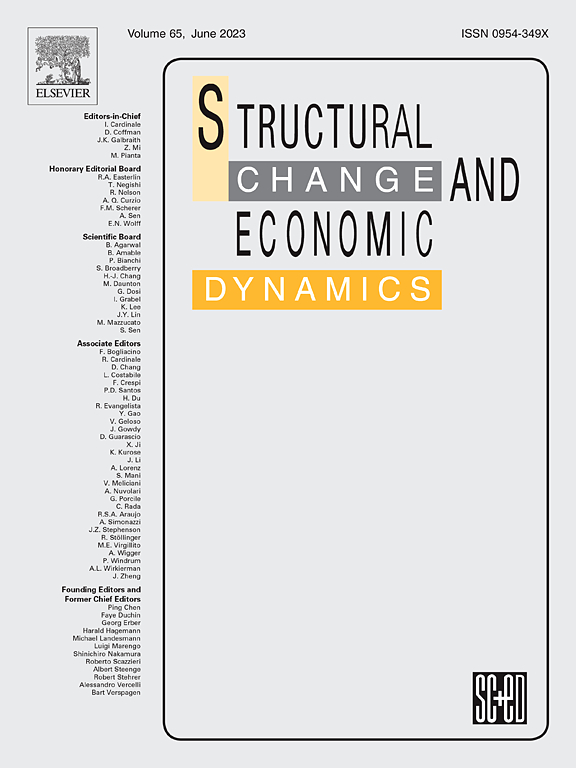Driving environmental, social, and governance excellence: The direct and indirect effects of intelligent transformation
IF 5.5
2区 经济学
Q1 ECONOMICS
引用次数: 0
Abstract
Integrating intelligent technologies into corporate processes represents a transformative response to sustainable and responsible business practices. Despite its growing significance, the effects and mechanisms through which intelligent transformation impacts corporate environmental, social, and governance (ESG) performance remain insufficiently explored. Drawing on resource orchestration and dynamic capabilities theory, this study develops a theoretical framework to analyze how intelligent transformation empowers ESG improvement. Using a comprehensive dataset of Chinese A-share listed companies from 2009 to 2023, the empirical results confirm that intelligent transformation significantly enhances ESG performance. This improvement is realized through three key channels: enhancing information disclosure quality, fostering green innovation, and mitigating supply chain concentration. Furthermore, the effects are more pronounced among state-owned enterprises, technology- and capital-intensive corporations, corporations located in the eastern area of China, and those operating in highly marketized regions. A value chain analysis further reveals that intelligent transformation in research design, manufacturing, and marketing consistently drives ESG enhancements. These findings enrich the literature on intelligent transformation and provide actionable insights for corporations seeking to optimize their sustainability practices in an intelligence era.
推动环境、社会和治理卓越:智能转换的直接和间接影响
将智能技术集成到企业流程中代表了对可持续和负责任的商业实践的变革性响应。尽管智能转型越来越重要,但其影响企业环境、社会和治理(ESG)绩效的效果和机制仍未得到充分探索。利用资源编排和动态能力理论,本研究建立了一个理论框架来分析智能转型如何增强ESG改进。利用2009 - 2023年中国a股上市公司的综合数据集,实证结果证实,智能化转型显著提升了企业的ESG绩效。通过提高信息披露质量、培育绿色创新和降低供应链集中度三个关键渠道实现这一改善。此外,在国有企业、技术和资本密集型企业、位于中国东部地区的企业以及在高度市场化地区经营的企业中,这种影响更为明显。价值链分析进一步表明,研究设计、制造和营销方面的智能转型持续推动ESG的增强。这些发现丰富了关于智能转型的文献,并为寻求在智能时代优化其可持续性实践的企业提供了可操作的见解。
本文章由计算机程序翻译,如有差异,请以英文原文为准。
求助全文
约1分钟内获得全文
求助全文
来源期刊

Structural Change and Economic Dynamics
ECONOMICS-
CiteScore
9.60
自引率
4.90%
发文量
159
期刊介绍:
Structural Change and Economic Dynamics publishes articles about theoretical, applied and methodological aspects of structural change in economic systems. The journal publishes work analysing dynamics and structural breaks in economic, technological, behavioural and institutional patterns.
 求助内容:
求助内容: 应助结果提醒方式:
应助结果提醒方式:


